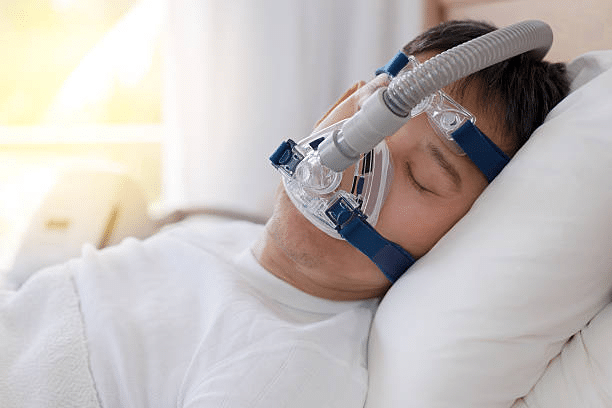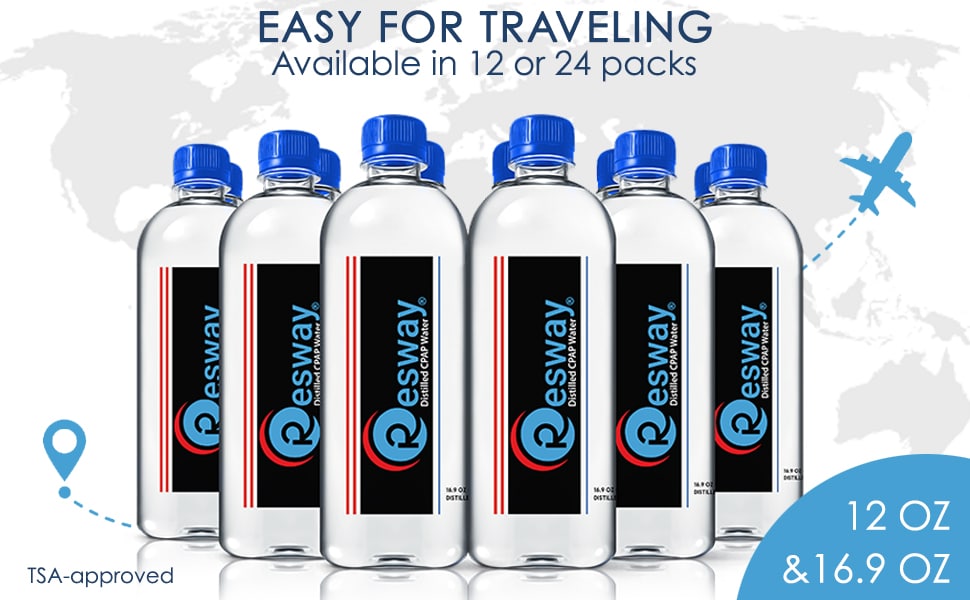CPAP therapy is a common treatment for obstructive sleep apnea (OSA), a widespread sleep disorder affecting millions globally. Low oxygen levels and disorganized sleep are caused by irregular breathing patterns and frequent breathing pauses experienced by people with OSA, but CPAP therapy can help alleviate these symptoms.
OSA can make you more likely to get heart disease, heart failure, or a stroke if you don’t treat it. CPAP therapy is thought to be an effective treatment for OSA, and it also has important benefits for the heart.
The association between CPAP usage and cardiovascular health will be discussed in this article, along with recent findings and studies that demonstrate the benefits of CPAP use in improving cardiovascular health. Read until the end to learn more!
Understanding Sleep Apnea Therapy

Sleep apnea, a sleep disease that causes breathing disruptions while you’re asleep, is often treated using CPAP therapy. CPAP therapy prevents the airway from collapsing and reduces the frequency of apnea occurrences by providing a steady airflow to the airway.
A mask that covers the nose and/or mouth and distributes the air pressure to the airway are both components of CPAP devices. A pump produces the air pressure.
There are various types of CPAP machines and masks available, including:
- CPAP Nasal masks
- CPAP Full-face masks
- CPAP Nasal pillow masks
Which vary in terms of mask design and air delivery pressure. Depending on patients’ tastes and demands, they may choose the ideal CPAP machine and mask. CPAP treatment has been shown to enhance cardiovascular health and lower the risk of cardiovascular events in individuals with obstructive sleep apnea syndrome by avoiding sleep-disordered breathing.
The Link Between Sleep Apnea And Heart Health
According to research, obstructive sleep apnea (OSA) sufferers have a higher chance of acquiring cardiovascular diseases, including hypertension, coronary artery disease, and stroke. Patients with severe OSA are at a higher risk than other patients. According to the Sleep Heart Health Study, people with OSA are more than twice as likely to develop cardiovascular illness than people without OSA.
A significant risk factor for cardiovascular disease, high blood pressure may result from untreated sleep apnea. The body reacts by producing stress hormones that may raise blood pressure when breathing pauses during sleep, which lowers the amount of oxygen in the blood. Chronic hypertension may develop due to this over time, harming the heart and blood vessels.
Untreated sleep apnea may result in various detrimental health effects, such as atrial fibrillation, heart failure, sudden cardiac arrest, and excessive blood pressure. Patients with untreated sleep apnea are more prone than those without the disorder to have these catastrophic cardiovascular events.
The Promising Benefits of CPAP Therapy
The good news is that the treatment for sleep apnea, called CPAP, may help lower the risk of heart disease. Positive air pressure is used in CPAP therapy to keep the airways open while you sleep, so you don’t stop breathing as much and your heart doesn’t have to work as hard.
According to many randomized controlled studies, CPAP therapy may lower the risk of cardiovascular mortality and nonfatal cardiovascular events in individuals with obstructive sleep apnea. CPAP treatment may decrease the risk of cardiovascular illness, enhance insulin sensitivity, lessen insulin resistance, and enhance the quality of life in OSA patients.
Sleep apnea and heart health are closely related. Untreated sleep apnea may result in several harmful cardiovascular consequences, such as heart disease, hypertension, and stroke. However, CPAP treatment for sleep apnea may help lower the likelihood of these adverse effects and enhance cardiovascular health.
CPAP Therapy And Heart Health
Sleep apnea is a major risk factor for cardiovascular disease, and untreated sleep apnea can lead to a variety of serious cardiovascular events, such as acute coronary syndrome, stroke, and sudden cardiac arrest. Sleep disordered breathing, including obstructive sleep apnea syndrome (OSAS), is characterized by episodes of reduced oxygenation and intermittent hypoxia, which can increase sympathetic activity, raise blood pressure, and trigger inflammation in the body. These changes can contribute to the development of cardiovascular disease and worsen existing cardiovascular risk factors such as high blood pressure, obesity, and insulin resistance.
Studies And Research

In a study published in the American Journal of Respiratory and Critical Care Medicine, researchers found that CPAP therapy reduced the risk of cardiovascular disease by 20% in patients with OSA. The study included over 10,000 patients with OSA who were followed for an average of 5 years, and those who adhered to CPAP therapy had a lower risk of developing cardiovascular disease compared to those who did not use CPAP therapy.
CPAP therapy reduces cardiovascular mortality and nonfatal cardiovascular events in OSA patients, according to several studies. Around 1,000 patients with moderate to severe OSA were tracked for an average of 5 years. CPAP users had a decreased risk of cardiovascular death than non-users.
In a Sleep Medicine research, 46% of OSA patients assigned CPAP therapy wore it for at least 4 hours per night, the minimum effective dose. Inadequate CPAP adherence can limit its cardiovascular benefits and risk reduction.
Potential Challenges Of CPAP Therapy
Despite its many benefits, using Continuous Positive Airway Pressure (CPAP) therapy can also present some potential challenges. Here are some of the problems that can happen with CPAP therapy and how to deal with them and get past them.
Mask Discomfort And Irritation
One of the most common challenges associated with CPAP therapy is mask discomfort and irritation. Patients may experience skin irritation, pressure sores, or facial pain due to wearing the mask for an extended period. This may lead to noncompliance with therapy and may impede treatment effectiveness.
Solution: To address this issue, patients should try different mask types and sizes. Healthcare providers can offer suggestions and help patients find the best fitting mask that provides the best comfort. Additionally, patients may benefit from mask liners or cushions that can help reduce pressure and irritation.
Difficulty Adjusting To The Therapy
It can be challenging to adjust to Continuous Positive Airway Pressure (CPAP) therapy initially, and patients may find it difficult to fall asleep with the mask on or may wake up frequently during the night. This may lead to poor adherence to the treatment.
Solution: Patients should understand that it may take some time to get used to the therapy, and healthcare providers can provide support and education to help them through the adjustment period. Providers may also recommend starting with short therapy sessions and gradually increasing the duration to help patients adjust.
Claustrophobia
Patients may feel claustrophobic or anxious when wearing the CPAP mask, which can lead to noncompliance with the therapy.
Solution: Healthcare providers can work with patients to identify the root cause of the anxiety and provide reassurance and education. Patients may also benefit from using relaxation techniques, such as deep breathing or visualization, to help them feel more comfortable.
Also Read: Experiencing CPAP Claustrophobia? Try These Solutions!
Nasal Congestion And Dryness
Continuous Positive Airway Pressure (CPAP) therapy can cause nasal congestion and dryness, leading to discomfort, irritation, and reduced treatment effectiveness.
Solution: Patients can try using a heated humidifier that adds moisture to the air to reduce nasal congestion and dryness. Additionally, saline nasal sprays or nasal decongestants may help alleviate congestion.
Noise From The Machine
CPAP machines can generate noise that may be bothersome and disruptive to patients and their sleep partners.
Solution: Healthcare providers can help patients choose a machine with a low noise level. Additionally, patients can try using earplugs or white noise machines to mask the noise.
Financial Cost
CPAP therapy can be costly, and patients may not be able to afford the machine, accessories, or replacement parts.
Solution: Healthcare providers can help patients understand their insurance coverage and assist with finding financial assistance programs. Patients may also consider purchasing used or refurbished equipment to reduce the financial burden.
Inconvenient For Travel
CPAP machines are large and not easily portable, which may be inconvenient for patients who travel frequently.
Solution: Healthcare providers can recommend smaller, more portable machines that are easier to transport. Additionally, patients can contact airlines and hotels in advance to ensure they can accommodate their CPAP machine.
While CPAP therapy is highly effective in treating obstructive sleep apnea, it can present some challenges that may impede compliance and treatment effectiveness. However, with the right support and education, patients can address and overcome these challenges and experience the many benefits of CPAP therapy. Healthcare providers play a critical role in providing education, support, and resources to help patients successfully manage their sleep apnea and improve their overall health and well-being.
How to Incorporate CPAP Therapy into Daily Life
incorporating CPAP therapy into daily life can be a challenge for some individuals. Here are some tips on how to incorporate CPAP therapy into your daily routine, maintain your CPAP equipment, develop healthy sleep habits, and seek support.
Make CPAP Therapy A Part Of Your Bedtime Routine
The first step in incorporating CPAP therapy into your daily life is to make it a part of your bedtime routine. Start by setting up your CPAP machine near your bed, and make sure that all the components are clean and in good working order. Most CPAP machines come with a built-in humidifier, which can help to prevent dryness and irritation in the throat and nasal passages. Be sure to fill the humidifier with distilled water before use.
Before you go to bed, put on your CPAP mask and turn on the machine. It may take a few nights to get used to the sensation of wearing the mask and the sound of the machine, but with time, you will likely find that it becomes a natural part of your routine.
Maintain Your CPAP Equipment
Regular maintenance of your CPAP equipment is essential for ensuring that it works properly and lasts as long as possible. The following tips can help you maintain your equipment:
- Clean your mask, tubing, and humidifier regularly with warm, soapy water.
- Replace your mask and filters on a regular basis, as recommended by the manufacturer.
- Check the tubing for any cracks or leaks and replace if necessary.
- Keep your CPAP machine in a clean, dry area, away from dust and dirt.
Develop healthy sleep habits
In addition to using CPAP therapy, developing healthy sleep habits can also improve your overall sleep quality. Some tips for healthy sleep habits include:
- Stick to a regular sleep schedule.
- Create a relaxing bedtime routine to help you wind down before sleep.
- Keep your bedroom dark, quiet, and cool.
- Avoid caffeine, alcohol, and nicotine before bedtime.
- Exercise regularly, but avoid intense workouts close to bedtime.
- Eat a healthy, balanced diet.
- Seek support
Finally, it is important to seek support when incorporating CPAP therapy into your daily life. This can come in many forms, including:
- Talking to your healthcare provider about any concerns or issues you may have with CPAP therapy.
- Joining a support group for individuals with sleep apnea or other sleep-related breathing disorders.
- Connecting with friends or family members who also use CPAP therapy.
- Using a CPAP device tracking app to monitor your usage and progress.
Incorporating CPAP therapy into your daily life can be challenging, but with the right tools and support, it is possible. By making CPAP therapy a part of your bedtime routine, maintaining your equipment, developing healthy sleep habits, and seeking support, you can improve your sleep quality and overall health.
Conclusion
Throughout this article, we have explored the relationship between sleep apnea and cardiovascular disease, as well as the role that CPAP therapy can play in reducing this risk. Here are some key points to remember:
- Sleep apnea is a common condition that can cause interrupted breathing during sleep.
- Obstructive sleep apnea (OSA) is the most common form of sleep apnea and occurs when the airway is partially or fully blocked during sleep.
- Sleep apnea has been linked to an increased risk of cardiovascular disease, including heart attacks, strokes, and high blood pressure.
- CPAP therapy is a highly effective treatment for sleep apnea that involves using a machine to keep the airway open during sleep.
- Studies have shown that CPAP therapy can reduce the risk of cardiovascular events in individuals with sleep apnea.
- It is important to seek medical advice if you suspect you may have sleep apnea and to discuss the use of CPAP therapy with your doctor.
By taking steps to address your sleep apnea, you can enjoy better sleep, better health, and a better quality of life overall. Don’t hesitate to speak with your doctor about your options and to take control of your health today.
Ready to enhance your sleep quality and health? Explore our wide range of CPAP accessories today and take the first step towards a better night’s sleep and a healthier life.
If this article helped you, we’d love to hear your thoughts in the comments below.




